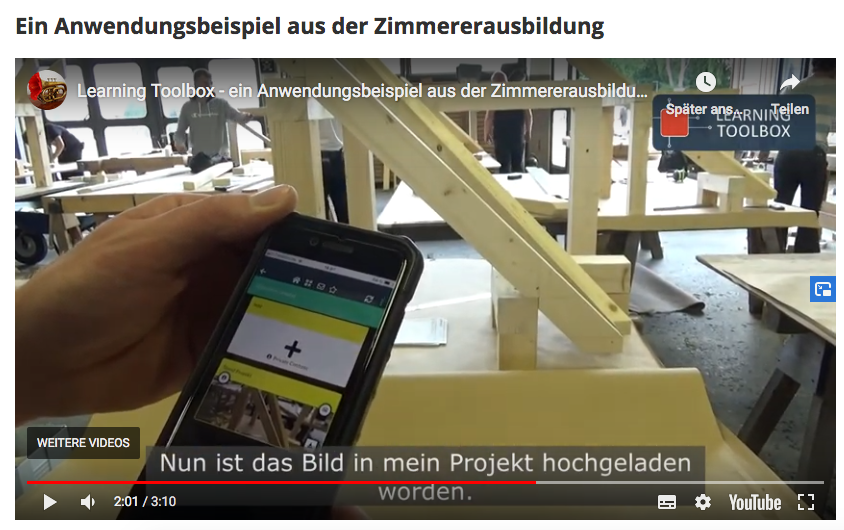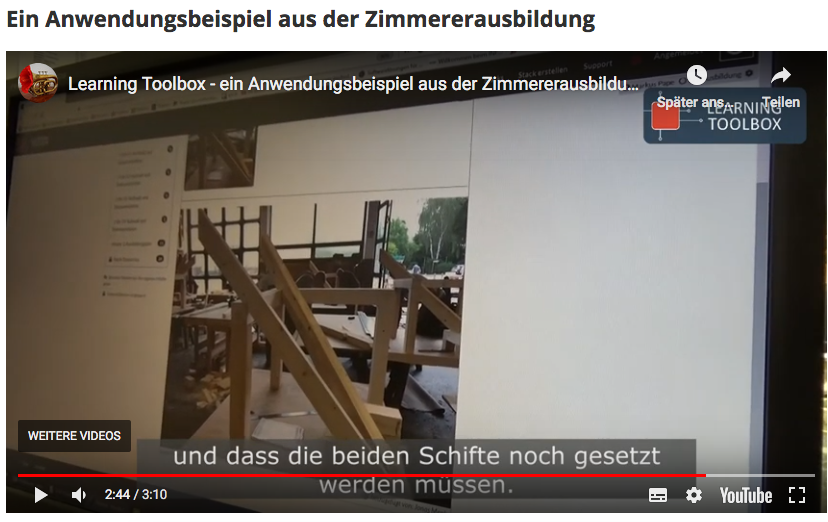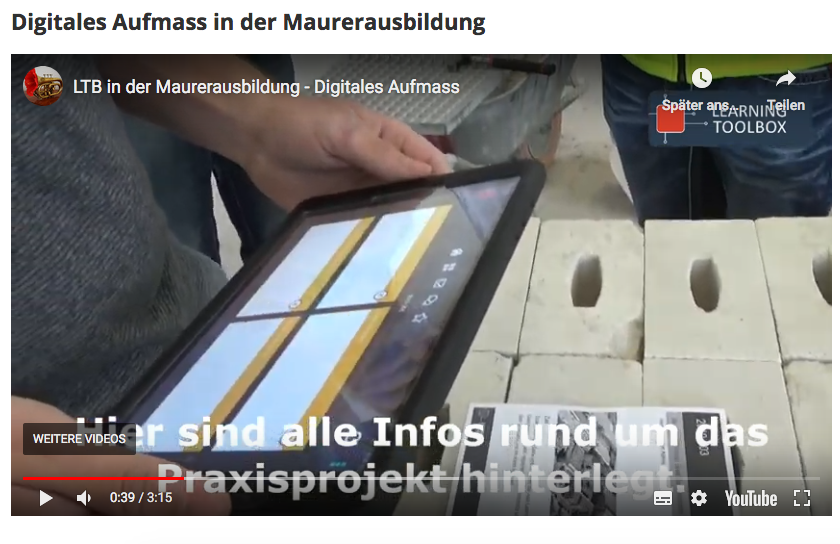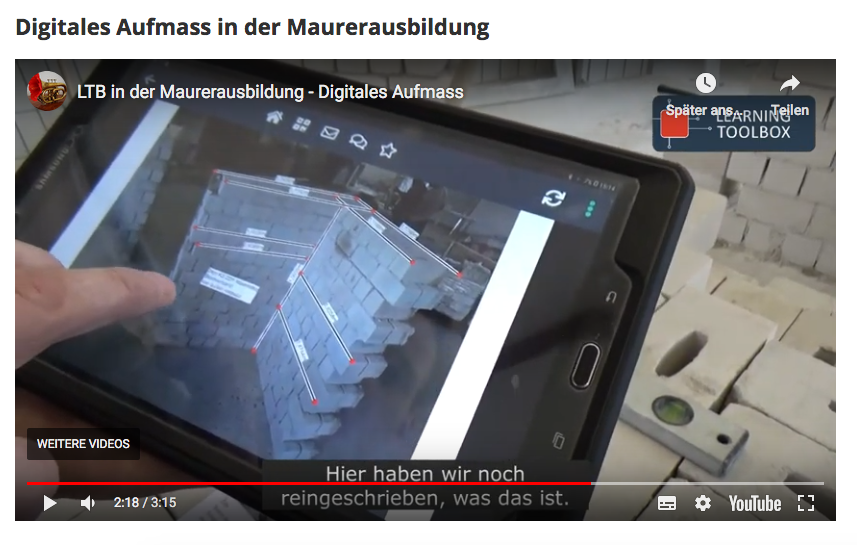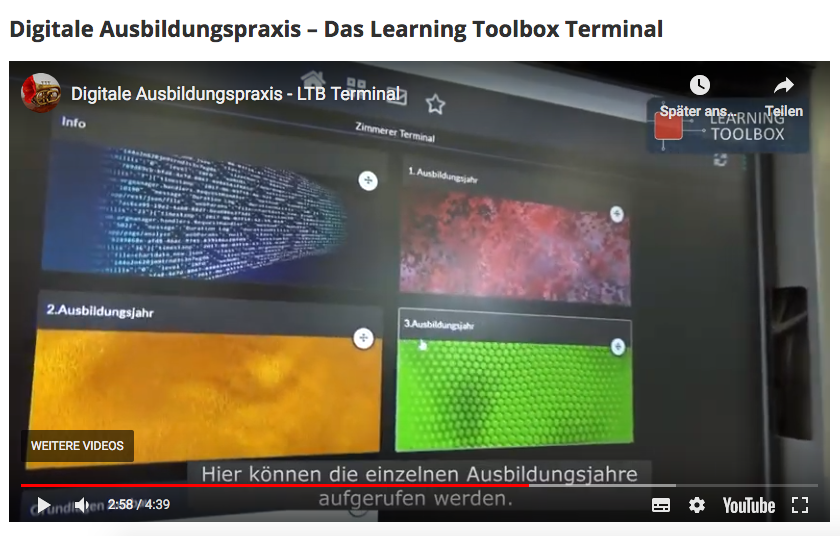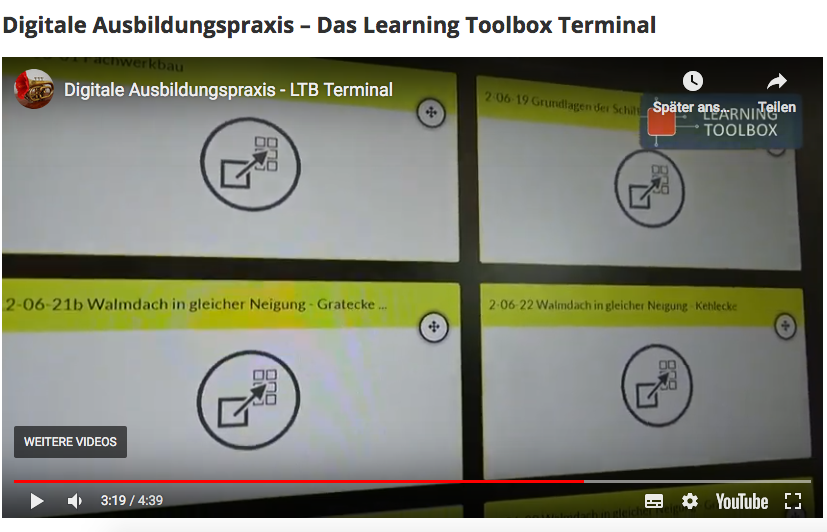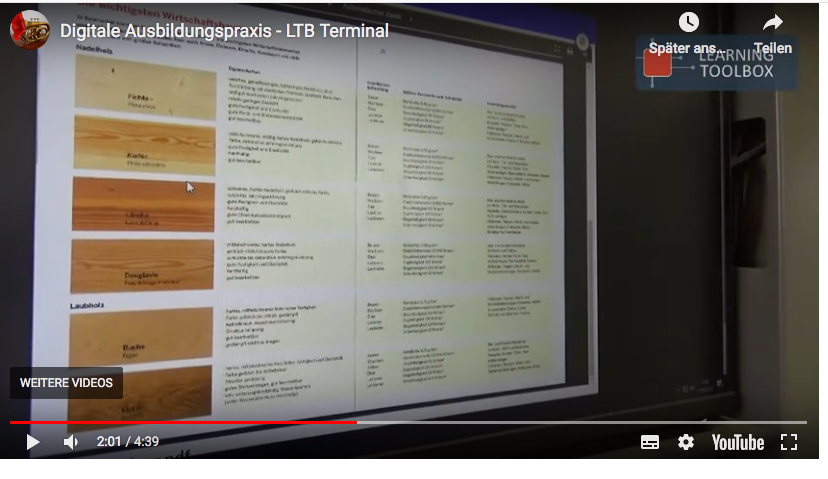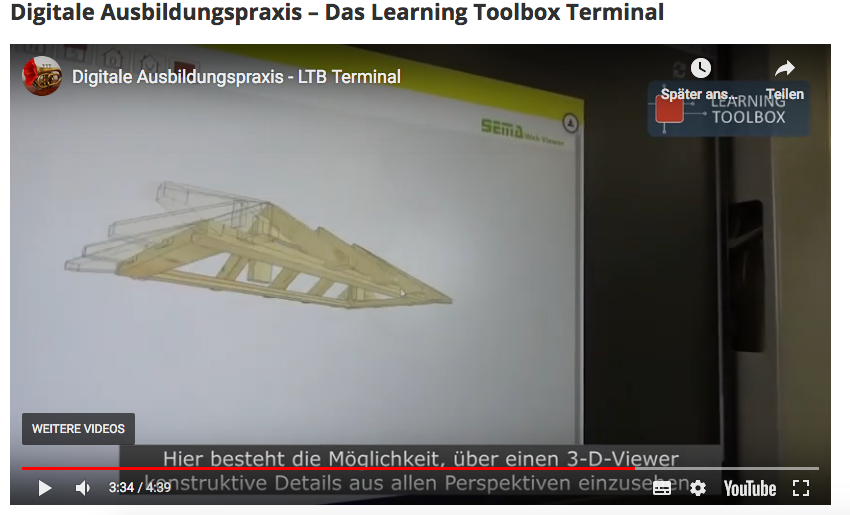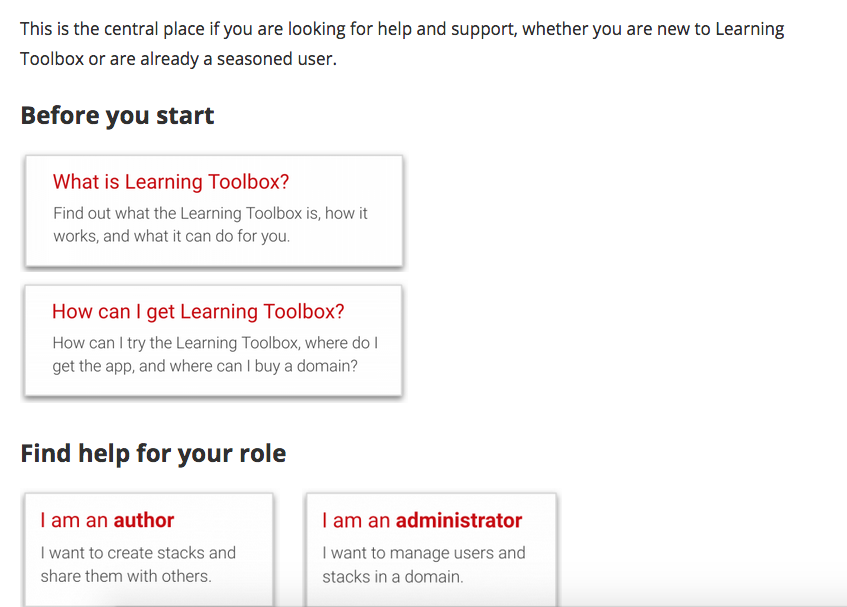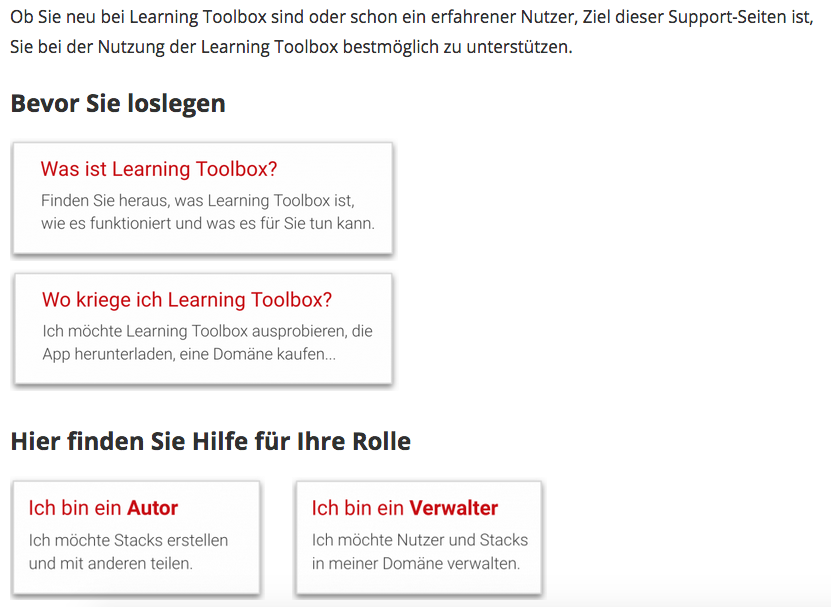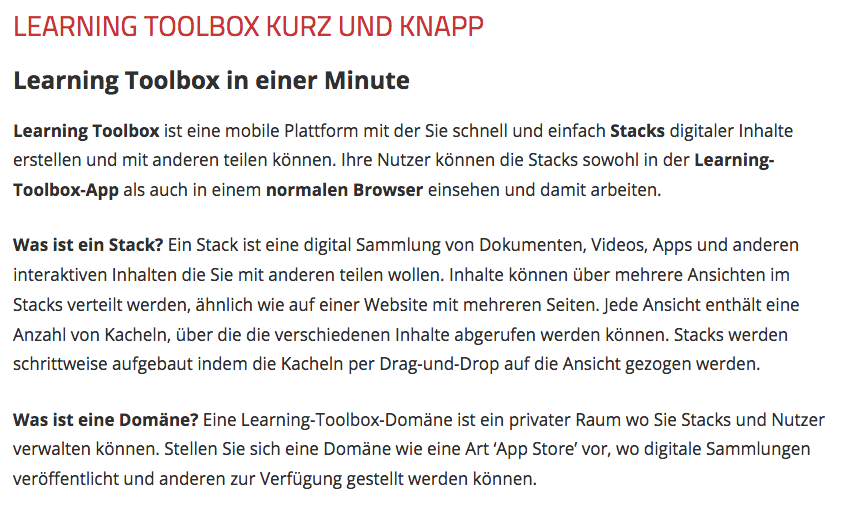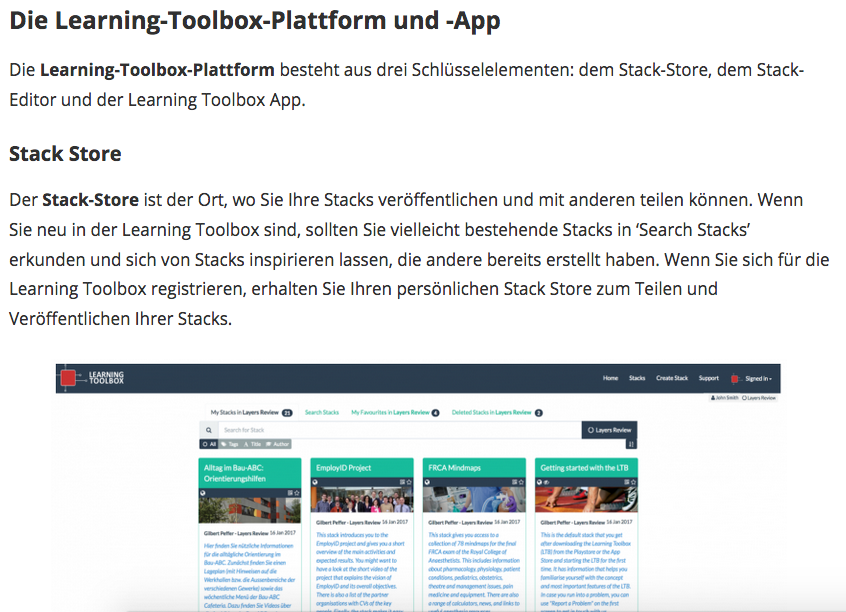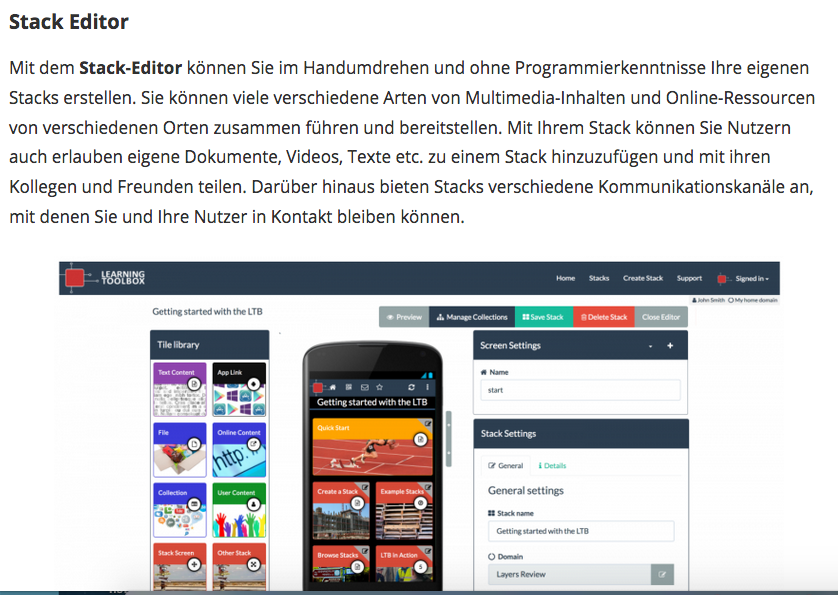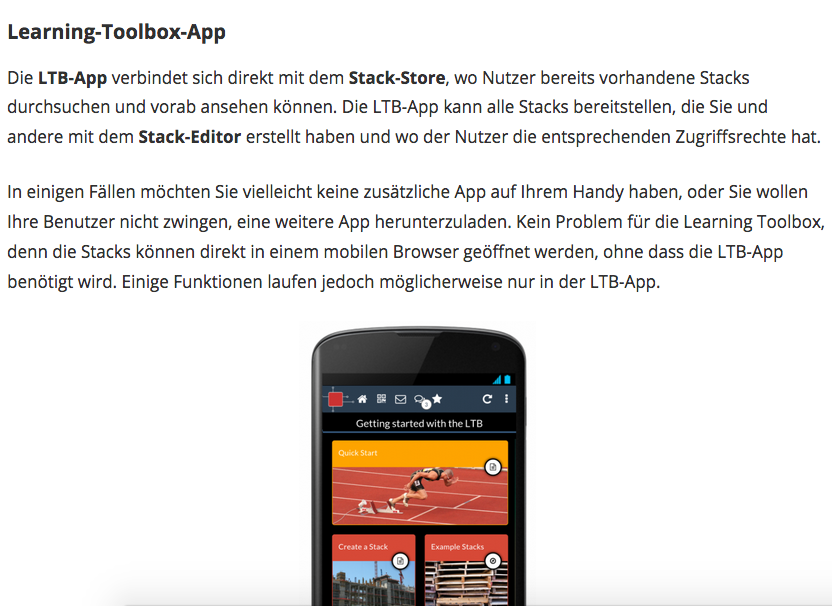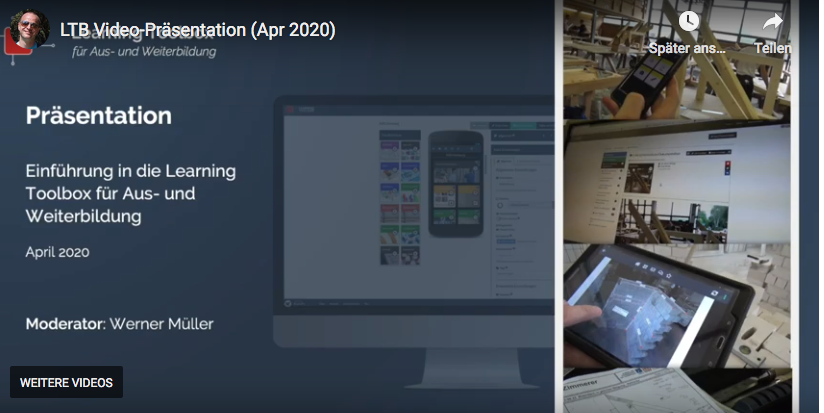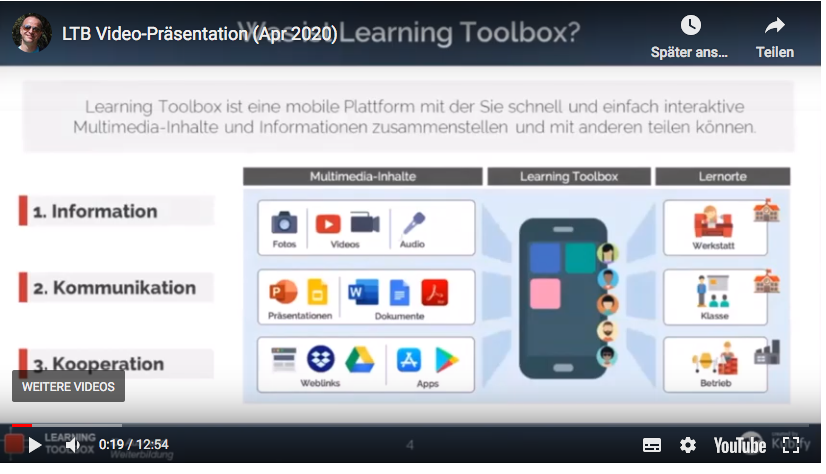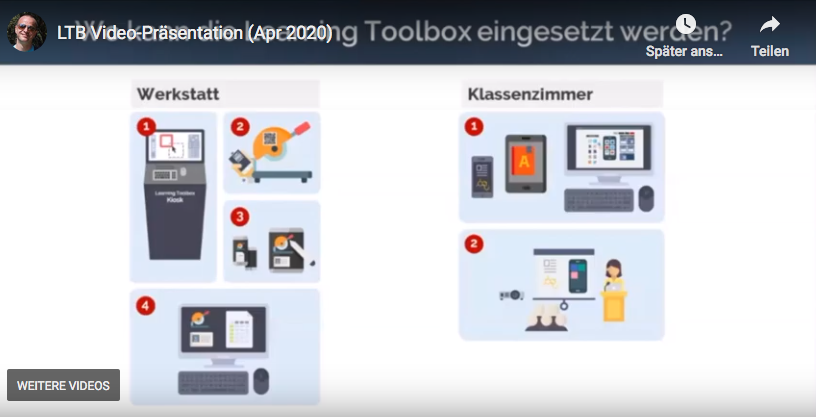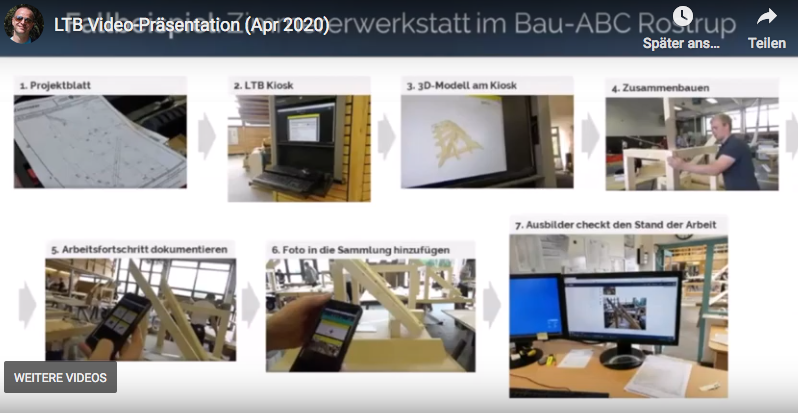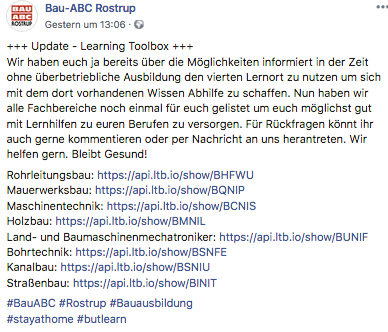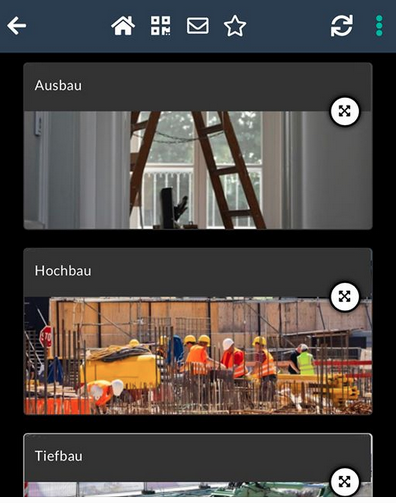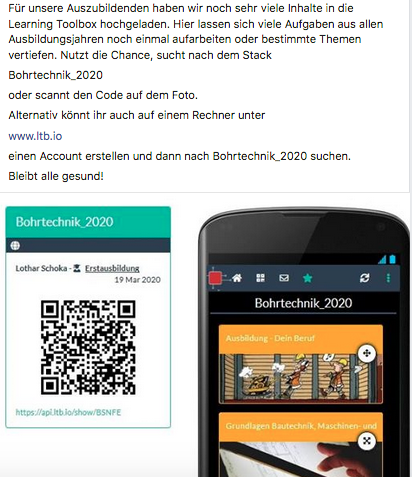Last Friday, the 16th of October, I was pleased to visit the German training centre Bau-ABC Rostrup once again. As regular readers of this blog already know, I have been working together with this training centre for several years. Our cooperation started when our institute (Institut Technik & Bildung, ITB) and Bau-ABC became partners of the EU-funded Learning Layers (LL) project in the year 2012. During the LL project we worked intensively together in the co-design process that led to the development of the Learning Toolbox (LTB) and in training activities to promote the digital competences of the trainers in Bau-ABC. After the end of the project (2017) I maintained contact with Bau-ABC and was pleased to continue working with them when I became the ITB partner in the EU-funded TACCLE4 CPD project (2018 -2020). This newer project gave me an opportunity to reflect on the achievements of the earlier one and to develop models and strategies for continuing professional development (CPD) of vocational teachers and trainers. Now, at the final phase of the project I was pleased to visit Bau-ABC and to organise the German Multiplier Event of the current project together with trainers of Bau-ABC. Below I will give a brief account on the event as such and in my next post I will discuss the contribution that I prepared for the event – a new LTB-showcase of LTB-powered stacks that I prepared for the TACCLE4 CPD project.
The preparation of the Multiplier Event – the long and winding roads
Originally I had prepared the initial plan for such an event together with my ITB colleagues. We had the idea of a bridging event that links the results of the TACCLE4 CPD project to their ongoing work with Open Educational Resources (OER) and with new developments with artificial intelligence (AI) in the field of vocational education and training (VET). We had drafted an invitation list that would bring together vocational teachers and trainers from different organisations – vocational schools and training centres – in the nearby region. The event was supposed to take place in June – between two travel periods when I was working outside Germany. BUT the corona-crisis made it impossible to implement these plans. Instead of returning to Bremen at that time I had to stay a longer period in my home country Finland. And due to the lockdown and the subsequent restrictions it was not possible to organise any presence event at the university campus before the summer holidays. Neither could we expect that vocational teachers and trainers could have had time to participate in such events when the schools and training centres were able to start anew at the end of May.
During the summer months it became apparent that there will be no chance to organise any kind of face-to-face event with external participants at the university campus. On the contrary, the access of university researchers and supporting staff was strictly restricted and meetings were transformed into online events. From this perspective it seemed impossible to go further with plans that would include inputs from different projects and bring together participants from different organisations. For some time it seemed that the only way to implement the Multiplier Event would be to produce a pre-recorded webinar and then invite online participants to access the online material. However, due to the travel restrictions I was stuck in Finland and even if I could have returned earlier, it would have been difficult to put together a good quality online resource to attract participants at the beginning of a new school year or the training period of apprentices.
When returning to Bremen in the beginning of October I didn’t have high hopes of getting a decent multiplier event organised (whether as a face-to-face event or as a virtual even). However, things changed when I contacted Melanie Campbell, coordinator of Continuing Vocational Training at Bau-ABC and the key person for promoting the use of LTB during the LL project and afterwards. We came to a conclusion that it would be possible to have a face-to-face event on Friday, the 16th of October in the afternoon (when the apprentices had already left for the weekend but the trainers were still there). We agreed on the input that I would make on the TACCLE4-CPD project (and the earlier LL project) and on her input concerning the current use of LTB in Bau-ABC.
The inputs for the Multiplier Event
So, we had the short time frame of two hours on Friday afternoon at our disposal – just as had been the case with the Theme Room training sessions in November 2015. This time there were additional challenges due to the corona restrictions and due to the fact that some of trainers were tied up with examination duties. But, with the thirteen trainers representing different trades and different training activities we had a qualified audience.
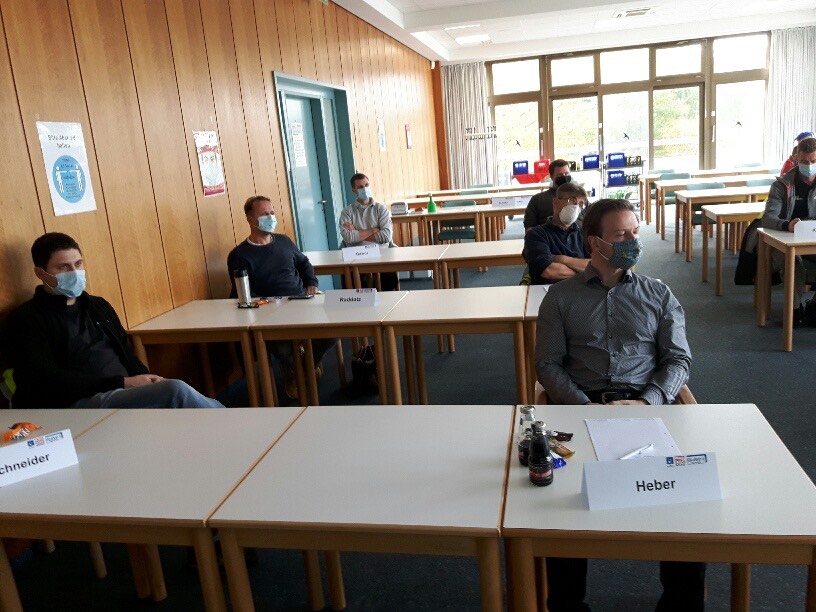
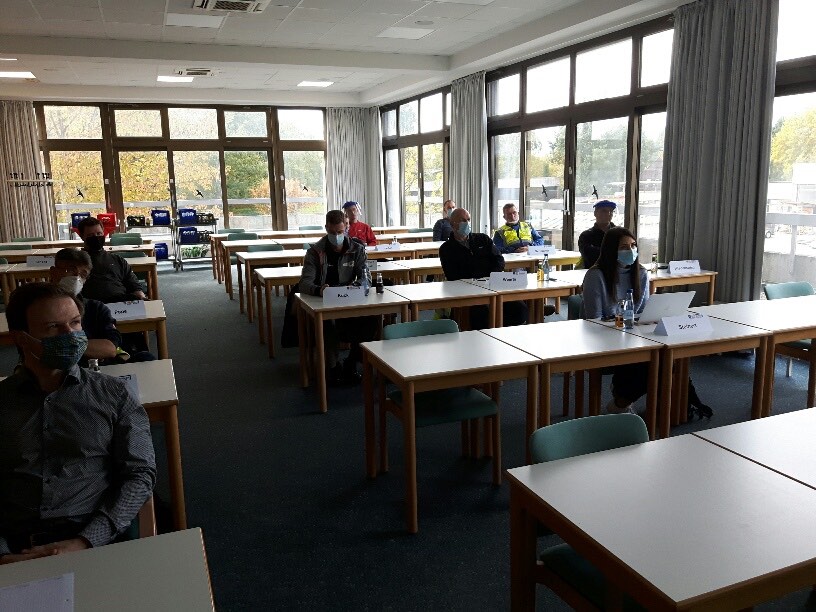
In my input I tried to give a picture, how three aspects of fieldwork in Bau-ABC became vital threads of the work of the Learning Layers project and its Construction pilot:
- Joint analyses of work processes ans work-realated learning in different trades of construction sector;
- Co-design of the digital toolset Learning Toolbox and different design events with trainers, apprentices and construction sector professionals who all gave their views, how a digital toolset could support them;
- Multimedia training and ThemeRoom training that paved the way for the introduction of the LTB as a toolset that is being used regularly in the apprentice training and vocational learning activities provided by Bau-ABC.
In a similar way I emphasised the special approach to the field of vocational education and training (VET) to promoting digital competences and to shaping continuing professional development of teachers and trainers:
- We are not discussing merely about integrating the use of digital tools to teaching school subjects. Instead, the challenge is, how to link the use of tools to vocational learning and occupational work.
- We are not discussing merely about use of new educational technology to support school-based learning. As a contrast, the challenge is, how to link the use of appropriate digital toolsets that contribute to changes in working life and work-related learning.
- We are not merely talking about promotion of digital competences of individual teachers (responsible of their subject matter). As a contrast, the holistic approach to vocational learning requires that teachers and trainers have a common approach to using digital tools.
In the light of the above I made the point of different innovation paths for introducing the use of digital tools. In this context I referred to different ITB projects that I had described in my reports:
- The Kompetenzwerkstatt projects have been (re)designing the curricula (as a whole) for different vocational learning contexts. Here, the use of digital tools has been built in into specific curriculum processes.
- The Learning Toolbox has been introduced as a new integrative toolset to be used in exemplary learning projects and to be spread in further projects via internal knowledge transfer and peer tutoring.
- The Brofessio project had to deal with process industry cases in which the processes were sealed and could not be made transparent for learning in the context of work. As a contrast, it was necessary to introduce micro-learning units for off-the-job training to support work-related learning.
- The use cases of introducing Opene Educational Resources (OER) were taken from specific vocational of pre-vocational learning contexts. Altogether they opened a perspective from relatively simple exercises to more complex uses of high-tech resources and to collaborative learning that involves learners from different trades.
Finally, I discussed the Theme Room experience of the year 2015 and the rethinking of the Theme Room approach for present date use. Firstly, I emphasised that the concept of training with Theme Rooms was a well-thought format but we couldn’t benefit of all the richness since we couldn’t integrate the use of LTB to the training. Secondly, I emphasised the need of making a situation assessment on the challenges in the occupational fields, on the capability of trainers and learners regarding the use of digital tools and on the path to follow in the training. In this respect I underlined that the Theme Room Training 2020 framework (that I had drafted for the project) invites the users the design their own theme rooms with their own themes instead of following a ready-made guideline.
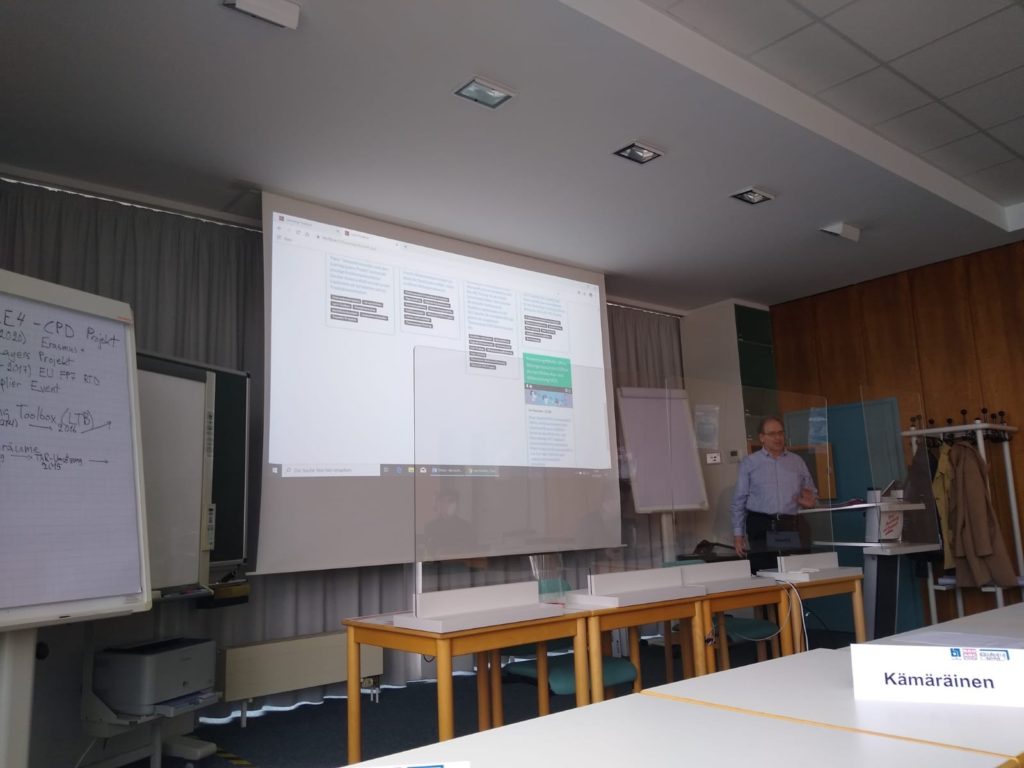
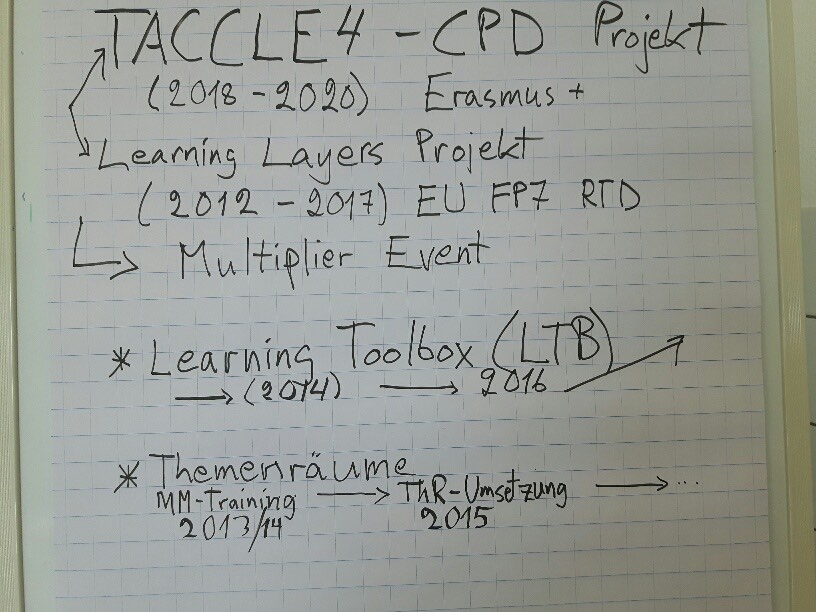
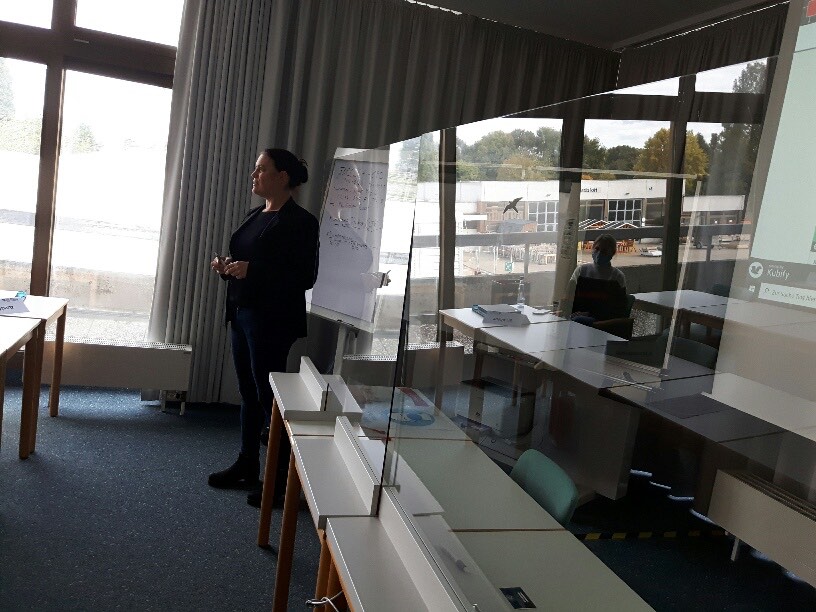
The discussion takes off – coming together
When opening the discussion Melanie Campbell pointed to the importance of the Theme Room training in 2015 as atraining campaign for all trainers of Bau-ABC. The aim was to bring the digital competences of trainers to an equal level – as much as this could be achieved. Since then the use of LTB in different trades has taken the main attention and the practical issues have come up as the main concerns.
In the discussion many trainers brought into picture different problems that delimit the use of LTB at the training sites. Partly these are of infrastructural nature, partly there are difficulties in using the functions of LTB with given software solutions. Thus, the trainers have noticed that LTB is frequently used over the weekend. Melanie Campbell took note of these issues and suggested that similar Friday afternoon sessions should be used for troubleshooting and for sharing knowledge, how to overcome the difficulties.
Some of the trainers made the point that the Theme Rooms should be brought back to picture. Others commented that more emphasis should be given on overcoming the problems and getting more users at same level. Once this has been achieved, then it would be possible to take further steps in deepening the understanding on digital tools.
Altogether, the discussion reflected the situation in a training centre that had the experience of being early users of digital tools. In this respect it seemed that a period of “Theme Forums” would be needed to deal with the current problems befor heading to new cycle of Theme Rooms. Yet, when looking back at the earlier phases of the Learning Layers project in 2014 and 2015, the ones of us who had shared experiences of that time could agree that we come a long way further. Indeed, much of what we discussed as something desirable, had become lived practice of present date.
I guess that this is enough of the event and of our discussions. In my next post I will give insights into the LTB-showcase of the TACCLE4 CPD project that I presented in the event.
